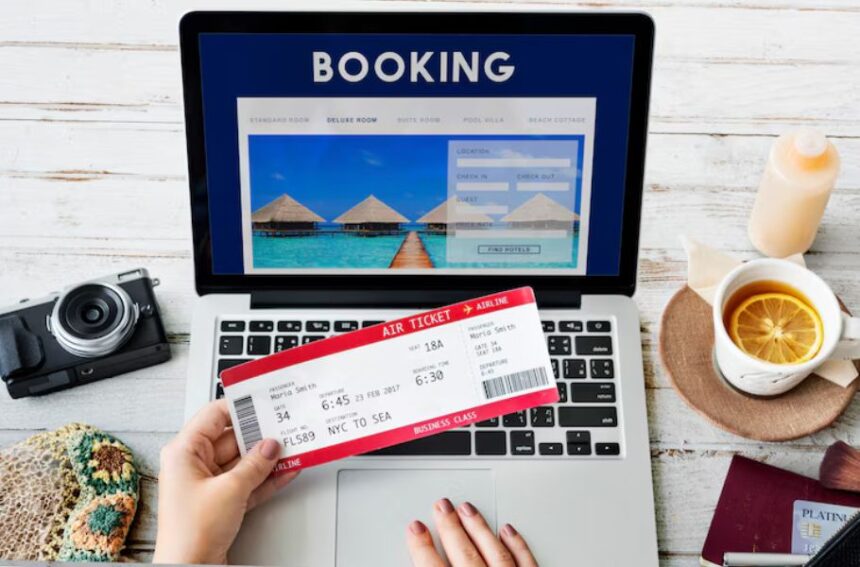How to make a booking site can be an exciting project, whether you’re building it for a hotel, restaurant, event, or any other business that requires reservations. The world is increasingly digital, and the convenience of online bookings can streamline your business operations while offering customers an efficient way to book services.
In this guide, we will walk you through the steps to create a booking site, from planning and design to development and optimization. We’ll cover everything you need to know to ensure your booking platform is easy to use, functional, and meets the needs of both your business and your customers. Understand Your Business Requirements
Before diving into the design and technical aspects of building how to make a booking site, it’s crucial to understand your business’s specific needs. This will ensure that the platform is customized to your requirements.
What Services Will You Offer?
Think about the type of services you are offering. For example:
- Hotels: Room bookings, dates, and price ranges.
- Restaurants: Reservation times, table sizes, and special requests.
- Events: Ticket reservations, seating arrangements, and event schedules.
Payment Integration
Consider whether you need to integrate payment systems, such as credit card processing or mobile payment methods. Some platforms may also require subscriptions or deposit payments.
User Experience Focus
how to make a booking site user interface (UI) and user experience (UX) are critical. Simplify the booking process so your customers don’t feel overwhelmed by too many choices or complicated steps.
Choose the Right Booking System
Once you have a clear understanding of your business needs, it’s time to decide whether to build your booking site from scratch or use an existing booking platform.
Custom-Built Website
A custom-built booking site allows for full control over design and functionality. However, this requires hiring developers, ongoing maintenance, and higher costs. It’s ideal for businesses with unique booking needs or advanced functionalities.
Booking Software or Plugin
For simpler solutions, using how to make a booking site or plugins is a great choice. Popular platforms like WordPress, Wix, and Squarespace offer booking plugins that can be easily integrated into your existing site. This is a cost-effective solution and works well for businesses with basic booking needs.
Plan Your Site’s Design and Layout
The layout and design of your how to make a booking site should be intuitive and user-friendly. The goal is to guide your customers smoothly through the booking process while maintaining a clean and visually appealing interface.
Simple and Clear Design
Use large fonts, easy navigation, and a clean color scheme. A cluttered interface can confuse customers and cause them to abandon their booking process.
Mobile Responsiveness
With mobile traffic increasing, ensure your site is responsive and looks great on smartphones and tablets. Customers should be able to book from any device without difficulty.
Call-to-Action (CTA) Buttons
Prominently display CTA buttons like Book Now, Reserve Your Spot, or Check Availability. These should be easy to find and stand out on the page.
Implementing the Booking System
Now that you have a design and layout in mind, the next step is to integrate the booking functionality. This step requires a clear process and attention to detail to ensure the system works seamlessly.
Real-Time Availability
Ensure your booking system allows customers to see real-time availability. This feature is critical for avoiding double bookings or confusion about available time slots.
Confirmation and Reminders
Once a booking is made, the system should send automatic confirmation emails or messages to the customer. These reminders help minimize no-shows and improve customer satisfaction.
Customizable Fields
Allow customers to customize their how to make a booking site by selecting specific preferences such as room type, special requests, or dietary requirements.
Add Payment Gateways and Security Features
A secure and reliable payment gateway is crucial to building trust and providing a smooth checkout experience.
Payment Integration
Integrating popular payment options like PayPal, Stripe, or credit/debit cards helps customers feel secure during transactions. You can also offer local payment methods based on your target audience.
SSL Encryption
To protect customer data, make sure your booking site has an SSL certificate. This ensures that all sensitive information, such as credit card details, is encrypted.
Test Your Site
Before launching your booking site, thorough testing is essential to ensure everything is working as it should. Test every aspect, from making a booking to payment processing, to check for any glitches.
User Testing
Invite a few users to test the booking process. This will help you identify any issues in navigation, layout, or usability. Gather feedback and make necessary adjustments.
Performance Testing
Ensure that your site can handle high traffic volumes, especially during peak times. Slow load times or a site that crashes under heavy traffic will frustrate potential customers.
Optimize for SEO and User Engagement
Once your site is live, it’s important to optimize it for search engines to ensure potential customers can find you.
SEO Strategy
Use relevant keywords throughout your site content. For instance, if you’re running a hotel booking site, make sure to use keywords like “affordable hotel bookings,” “best hotel deals,” or “luxury hotel reservations.”
Engaging Content
Include blog posts, customer testimonials, and FAQs to enhance user engagement. Customers are more likely to trust a site with clear, helpful content.
Monitor and Maintain the Site
Building a booking site is an ongoing process. Regular monitoring and updates will keep it running smoothly.
Performance Tracking
Use tools like Google Analytics to monitor traffic and user behavior on your site. Tracking this data helps you understand where customers drop off or encounter issues.
Regular Updates
Ensure that your booking system and software are regularly updated to avoid security vulnerabilities and improve functionality.
Conclusion
how to make a booking site can significantly enhance the way your business interacts with customers, offering them a seamless and convenient way to reserve services or products. Whether you’re managing a hotel, restaurant, or event, having an intuitive and secure online booking platform is essential for streamlining your operations and improving customer satisfaction.
By following the steps outlined in this guide understanding your business requirements, choosing the right booking system, designing a user-friendly interface, and ensuring secure payment processing you can build a booking site that meets both your needs and the expectations of your customers.
Remember, the key to a successful booking site lies in simplicity, usability, and reliability. With the right planning and tools, your platform can become an invaluable asset for your business, helping you attract more customers and foster long term growth. Keep testing, optimizing, and maintaining your site to ensure it stays efficient, user-friendly, and up to date with the latest trends and technologies.
FAQs
- How long does it take to build a booking site?
Building a booking site can take anywhere from a few weeks to a few months, depending on the complexity of the site and the features you require.
- Can I integrate my booking site with my existing website?
Yes, many booking plugins and systems can easily integrate with existing websites built on platforms like WordPress, Wix, and Squarespace.
- Do I need to pay for a booking system?
There are free options available, but for more advanced features and customization, you may need to pay for a premium booking system.
- What payment options can I offer on my booking site?
Most booking platforms support various payment methods, including credit cards, PayPal, and even local payment options depending on your region.
- How can I reduce no-shows with my booking system?
Implement automatic email confirmations and reminders, and consider taking a deposit or prepayment to secure the booking.



